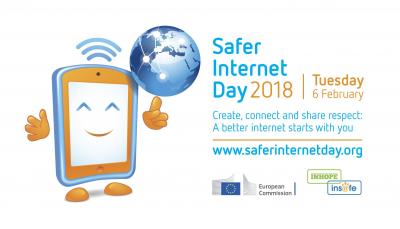

It’s Safer Internet Day today and we thought we would tell you more about the apps that your children and teenagers are using. Peter and Rachael recently went on a Safeguarding course and came away in a state of shock. Apps have really developed in the last couple of years and there are plenty out there which your children should not be using or only be using with close supervision!
Snapchat
Age restriction 13+.
What is it?
“The fastest way to share a message.” The main concept of the app allows you to send pictures and videos complete with filters and geotags which are only available for a few seconds before disappearing – forever (unless it’s screenshot).
What are the dangers?
Users can add and find friends through their usernames but can also add stranger who are ‘nearby’. If you have ‘Snapmaps’ enabled, everybody you are ‘friends’ with can see your location. If you add photos or videos to a public ‘story’ anybody with Snapchat can access it.
Live.ly
Age restriction 13+ but also contradicts in Terms & Conditions stating 18+.
What is it?
Live.ly is a live video streaming platform. It created by the same people who brought musical.ly into our lives (and caused lots of safeguarding issues). Users can broadcast their live videos to whoever is watching and also interact with them through screenshots, comments and following other broadcasters.
What are the dangers?
Users are sharing content with strangers. They might be encouraged to share personal or inappropriate information. Other users may also share inappropriate content such as indecent images. Live.ly does not require age verification.
Kids Messenger
Age restriction - 6+.
What is it?
It is a video calling and messenger app designed for children to stay in contact with family and friends.
What are the dangers?
There is little dangers as all contacts have to be approved by parents or carers.
Omegal
Age restriction 18+.
What is it?
“Talk to strangers. When you use Omegle, we pick someone else at random and let you talk one-on-one.”
What are the issues?
You have absolutely no idea who you are being paired up with to chat to. Once again, you could be encouraged to share personal information or be exposed to inappropriate content.
Yubo (previously called Yellow)
Age restriction 13+.
What is it?
An app similar to the dating app, Tinder. Users swipe left or right to accept or decline speaking to someone based on their profile picture. It has been regularly referred to as ‘Kids Tinder’.
What are the issues?
Locations are shared as it is an integral part of the app, allowing you to find new ‘friends’ nearby. Although the app has an age restriction, anybody can sign up. Are your children coming across inappropriate profiles or being sent inappropriate content from their new ‘friends’? You can ‘Go Live’ on the app, allowing any other users (not just your ‘friends’) to view your live streams and send you messages.
Send Safe Message
Age restriction - no age stated.
What is it?
A tool which can be used along side other social media platforms to send private messages which self-destruct once they have been seen.
What are the dangers?
The disclaimer claims it is not 100% secure. It encourages insensitive messages or photos to be sent.
Secret Calculator
Age restriction - no age stated.
What is it?
It looks just like your ordinary calculator app and works just like one too. However, behind the app hides secret photos and videos which can only be seen once the passcode has been entered into the calculator.
What are the dangers?
Your children could be storing inappropriate content on their phones and tablets.
Our top tips to staying safe online:
• Your personal information should be kept secret – name, address, age, school and location. Also avoid uploading pictures of yourself to social media wearing a uniform. It is very easy to quickly google the name seen on your logo
• Be nice to others
• Tell someone if somebody has asked you for some personal information or said something inappropriate. Think SMART (Safe, Meet, Accepting, Reliable, Tell).
• Age restrictions are there for a reason if you are too young, then it is for a reason
• Privacy settings are there to protect you – use them to their full advantage
We have covered just a few apps. There are many more out there exposing young people to dangers. For more information, there are lots of great websites out there including CEOP and Internet Matters.